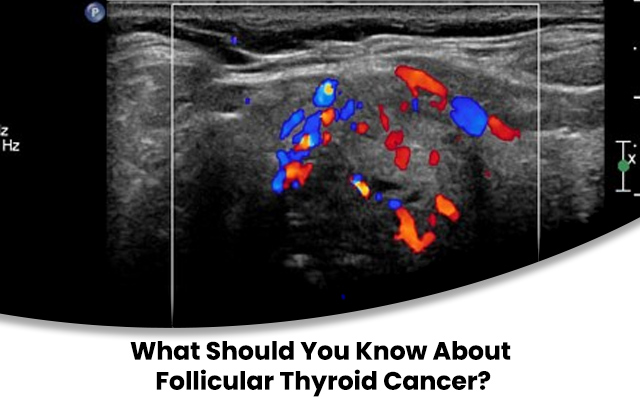When we talk about thyroid cancer, it’s important to remember that there are different thyroid cancer types, and one of the most common is follicular thyroid cancer. If you’ve recently been diagnosed or are looking to learn more, this blog will guide you through what you need to know about this type of cancer, from its causes to treatment options. Let’s take it step by step.
Understanding Follicular Thyroid Cancer
Follicular thyroid cancer develops in the follicular cells of the thyroid gland, which are responsible for producing and storing thyroid hormones. Unlike papillary thyroid cancer (another common type), follicular thyroid cancer is less likely to spread to the lymph nodes but can still spread to other organs, such as the lungs or bones, if not treated promptly.
This cancer is more common in older adults and is usually diagnosed after a lump or nodule is found in the thyroid gland. While it is a slow-growing cancer, early detection and treatment are crucial for a successful outcome.
Causes and Risk Factors
Although the exact cause of follicular thyroid cancer is still unclear, several factors can increase the risk of developing it, including:
- Age: People over 50 are more at risk.
- Gender: Women are more likely to develop this type of cancer than men.
- Iodine Deficiency: Since iodine is essential for thyroid hormone production, a lack of iodine in the diet can increase the risk.
- Radiation Exposure: Exposure to radiation, especially in childhood, may elevate the risk of developing any thyroid cancer types, including follicular thyroid cancer.
Symptoms to Watch For
In the early stages, follicular thyroid cancer may not show any symptoms. However, as the cancer progresses, you may experience:
- A lump or swelling in the neck
- Hoarseness or difficulty speaking
- Trouble swallowing or breathing
- Persistent cough unrelated to a cold
If you notice any of these symptoms, it’s essential to consult a leading cancer doctor in Kolkata for further evaluation.
Diagnosing Follicular Thyroid Cancer
To diagnose thyroid cancer types, including follicular thyroid cancer, your doctor may recommend several tests, such as:
- Physical Examination: The doctor will feel your neck for any lumps or swelling.
- Ultrasound: This imaging test helps identify abnormalities in the thyroid.
- Biopsy: A small sample of the thyroid tissue is taken for lab testing to confirm the presence of cancer cells.
- Blood Tests: These can help assess thyroid function and rule out other conditions.
Treatment Options
Once diagnosed, treatment for follicular thyroid cancer often involves surgery to remove the affected part of the thyroid, followed by radioactive iodine therapy. In some cases, hormone therapy may also be necessary to regulate thyroid function after surgery. The treatment plan will depend on the stage of cancer, the patient’s overall health, and other individual factors.
Conclusion
Understanding the different thyroid cancer types is important when facing a diagnosis like follicular thyroid cancer. While it can be a concerning condition, the good news is that with proper treatment, the prognosis is often favorable. If you or a loved one are experiencing symptoms or have concerns about thyroid health, it’s crucial to seek professional advice early on.
If you’re looking for expert guidance and treatment, consult an experienced oncologist in Kolkata who can provide personalized care and help you navigate your treatment options. Don’t delay when it comes to your health—schedule your consultation today!


